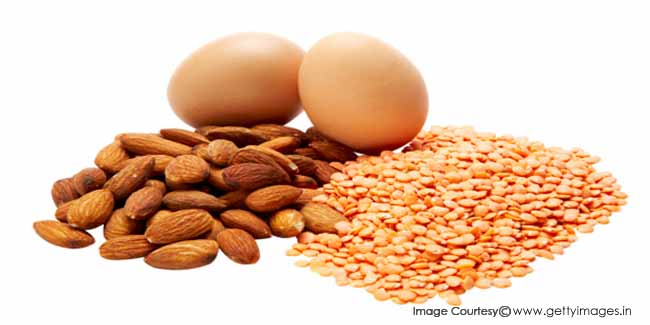
Being a vegetarian could be a personal, religious or nutritional choice and there are millions of vegetarians in the world.
 It is a common misconception that vegetarians cannot build muscle given their lifestyle of "do not eat meat.”
It is a common misconception that vegetarians cannot build muscle given their lifestyle of "do not eat meat.”
Table of Content:-
Before going ahead, let's understand what type of vegetarian are you. Yes! There are kinds:
- Lacto vegetarians- Dairy is allowed
- Pescatarians- Fish is allowed
- Lacto-ovo vegetarians- Dairy and eggs are allowed
- Vegans- No animal products of any kind are allowed
Unique set of challenges are bound with each variation. But, one common thing they all need when they are training is- sufficient protein.
One option can be whey and casein powders. They both are milk byproducts but, this fact keeps vegans from consuming them. It does not mean this suits lacto and lacto-ovo vegetarians because in order to separate milk into its components, stomach of veal calves in the form of enzyme rennets are used. Not veggie friendly!
You can be sure about your protein being purely vegetarian by kosher diet as milk and milk products can't mix in it. Unfortunately, most protein labels do not include this information, so you need to do your research first or call the company to enquire.
If dancing around "rennet" seems complicated (which it is), consider exploring other vegetarian protein sources. Do not worry; there are plenty of them which can stand against their animal counterparts. Some being:
Egg white protein, egg protein and liquid egg protein
All three are similar to whey protein and offer simple, more predictable ingredients.
Soy Protein
These protein packed but low in fat and cholesterol alternatives to whey are most common amongst vegetarians. Soy offers more flavor options than other vegetarian proteins. But, one must read labels carefully as some soy may contain milk and/or fish products.
Pea Protein
Pea protein is easy to digest, cholesterol-free, high in protein content and has a solid branched-chain amino acid profile. No wonder it is riding high on its fame by Dr Oz on TV. Savvy vegetarians are quite acquainted with this option.
Hemp Protein
Hemp seeds are packed with Omega-3s and are high in magnesium and iron. Additionally one serving of hemp seeds equals to almost half of your daily dose of fiber.
There are other protein sources that are vegetarian friendly:
- Beans and legumes
- Nuts and seeds
- Tofu
- Soybeans
A vegetarian, who eats things like brown rice, quinoa, potatoes, legumes, lentils and beans, nuts, seeds and avocados, you have a fair chance of building muscle. On the other hand, if you are mostly feasting on salads, fresh fruits, and other vegetable based dishes, your macro needs aren't getting fulfilled. Every vegetable must be accompanied with a healthy fat and protein packed side for balanced nutrition.
Being a vegetarian comes with its own challenges. Being a vegetarian for long may make you deficient of iron. This isn't the reason to turn and kill the nearest chicken. Understanding and preventing the micro nutrient deficiencies can aid you in continuing your lifestyle.
Look out for the biggest threats:
Iron
Iron can be sub divided into two types- heme and non-heme. Heme iron is mostly found in read meat and most vegetarians fall short of it. Non-heme iron can be found in many vegetables like spinach, dried peas, beans, lentils, artichokes and dry fruits.
Women are at a higher risk of developing iron-deficiency and anemia than males because of iron loss during menstrual cycle.
Calcium
It is vital for strong bones and muscular contractions. Low calcium causes cramps during workouts, hindering performance. In the long run, calcium deficiency can also result into osteoporosis and thinning of bones. Dairy products, spinach, broccoli and almonds are good source of calcium.
Zinc
Zinc is essential for proper body growth and development. The best zinc products are generally animal-based but natural sources like pumpkin seeds, sesame seeds, almonds, walnuts, oatmeal and cereals can help fight zinc deficiency.
Read more articles on Men's Health.
Read Next
Men and Hypertension
How we keep this article up to date:
We work with experts and keep a close eye on the latest in health and wellness. Whenever there is a new research or helpful information, we update our articles with accurate and useful advice.
Current Version
